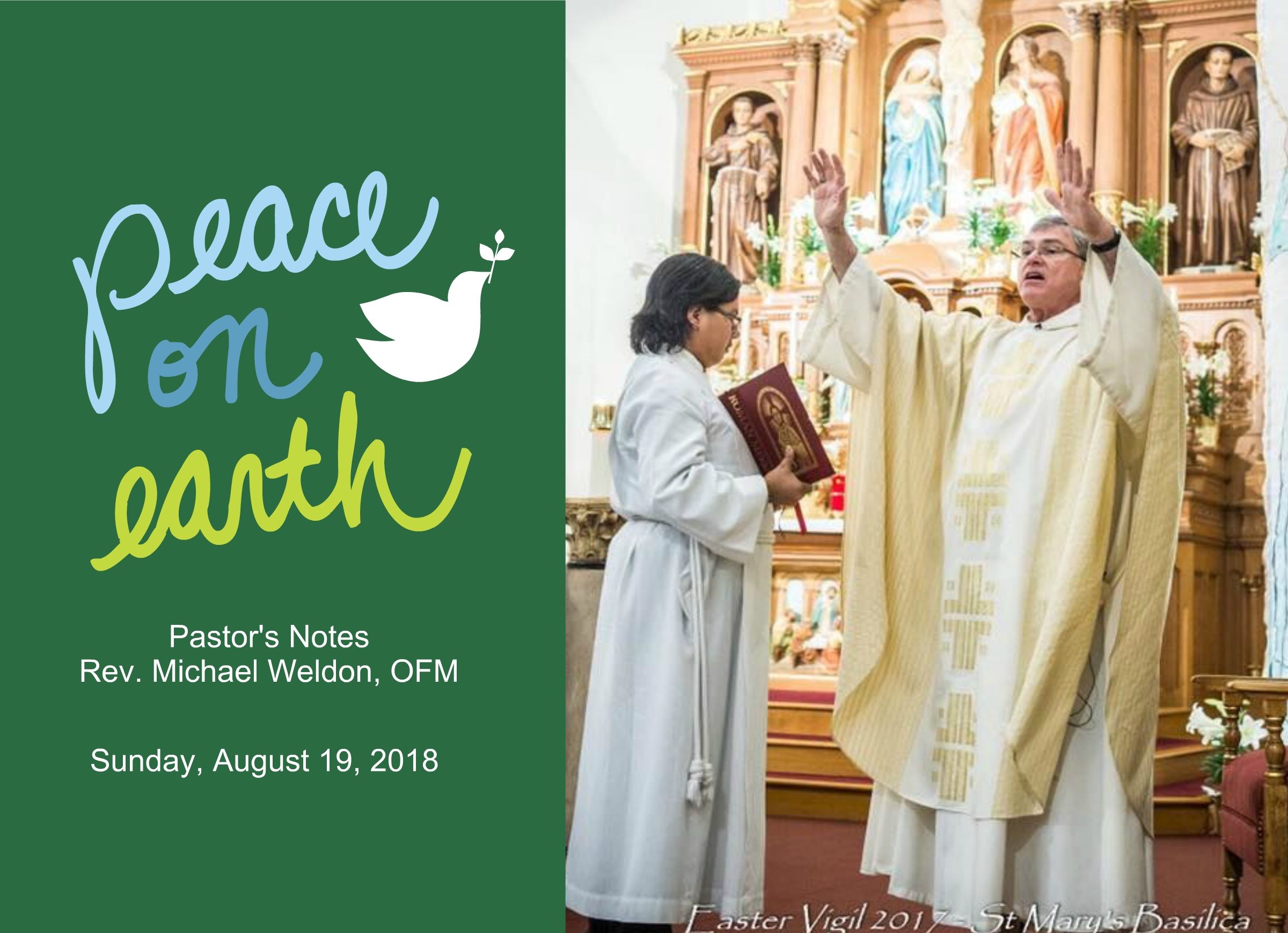St. Mary's Basilica
Phoenix, Arizona
Pastor’s Notes

How can this man give us his flesh to eat? How do we do it; make our lives available to others as nourishment? “The term, “this man,” in this weekend’s Gospel means the crowd was divided between “us” and “them.” We still are. In a half-joking manner, a certain biblical scholar has suggested that in the Gospels, “Jesus always seems to be going to eat, eating, or coming from eating.” That was the bridge.
St. Mary’s Parish seems to do a lot with food. It is one of our most significant budget items each year. And we have some reputable cooks that pray here! I just came back from a Weldon vacation where eating was again our most popular summer activity. Food, of course, was a primary concern for the half-starving people who listened to Jesus and followed Jesus. “Devotees” of the Food Channels and plain ole food-lovers might be interested in knowing the menu of that first group of followers. In ancient Palestine, the diet especially for folks on the edge of starvation, was cheap bread, wine and vegetables. The bread of the poor was not of the gourmet wheat variety, but was made from barley. The wine they drank was watered-down leftovers. Fish was not often available, and meat was expensive save for high holidays.
Food, or the lack of it, is everywhere in the Gospels. Still, “Jesus always seems to be going to eat, eating, or coming from eating.” The Gospel text of this weekend presents Jesus as the food, the “pièce de résistance” of the Banquet of God’s Reign. “Whoever eats my flesh and drinks my blood remains in me and I in him.”
This graphic image caused some alarm among certain of his original listeners. Jesus even uses a verb that indicates the physical crunching with teeth. Nothing could turn the stomach of a good Jew than a reference such as this. How can we actually do the kind of eating and drinking that Jesus proposes in this Gospel? Eating that “remains” not as extra pounds for the next diet, but sustenance that takes us deeper into human life and its God.
Each time we take the body and blood of Jesus into our own bodies, I think this is precisely what happens. Through this almost tactile and intimate way of encountering God, we will allow him all the way down into the deepest, most intimate part of ourselves — even to the molecular dimension of our being. We become what we eat. The boundaries between God and us, even “us and them,” get very flexible.
The Eucharist is to nourish us, strengthen us, change us in the same way food and drink does. “Whoever eats my flesh and drinks my blood remains in me and I in him.” Lots going on in the Basilica as August moves on to the Fall. Here are many opportunities to be food and drink for others. Join us.
A gentle week,
Fr. Michael Weldon, OFM
Some of the above taken from Ted Wolgamot reflection from the 2016 issue of Celebration.
